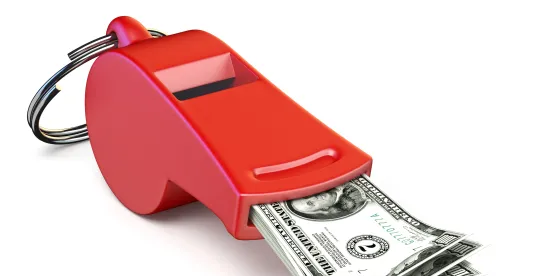On November 4, the U.S. Supreme Court heard oral arguments in a whistleblower case concerning the scope of the False Claims Act in regards to industry funded federal programs that are mandated by Congress. A ruling against the whistleblower threatens to narrow the scope of the FCA, limiting the ability of whistleblowers and the U.S. government to hold fraudsters accountable.
In the case, Wisconsin Bell Inc. v. U.S. ex rel. Heath, Wisconsin Bell, an AT&T subsidiary is challenging the revival of a qui tam whistleblower suit alleging that the company violated the FCA by defrauding the Federal Communications Commission’s E-rate program. Wisconsin Bell argues that no false claims are at issue because the E-rate program, a Congressional-mandated program to help certain schools and libraries afford internet and telecommunications, is administered by a private nonprofit organization and is funded by government-mandated payments made by private telecommunications carriers into the Universal Service Fund (USF).
In 2022, the U.S. Court of Appeals for the Seventh Circuit ruled that the whistleblower Todd Heath had offered sufficient evidence of falsity or scienter to defraud a federal program. This created a circuit split as in 2014 the U.S. Court of Appeals for the Fifth Circuit ruled that the FCA does not apply to E-rate program funds.
The Justices appear poised to narrowly resolve the circuit split in favor of the whistleblower Heath and against Wisconsin Bell and hold that there are false claims at issue. Focusing on the definition of what is a “claim” in the False Claims Act, the Justices seemed satisfied that the federal government provided at least a portion of funds in the USF that the whistleblower alleges was defrauded by Wisconsin Bell.
At oral argument, the Justices were skeptical of Wisconsin Bell’s argument that no federal money was provided to the USF and there was no “claim” within the meaning of the False Claims Act. Instead the Justices debated whether to decide the question narrowly, based on the fact that the federal government has provided the USF with $100 million, because the False Claims Act only requires that the government “provides or has provided any portion of the money” that is requested.
That fact appears to be sufficient for the Court to uphold the Seventh Circuit’s ruling that a false claim is at issue in the case.
What weighed heavily is that the circuit split between the U.S. Court of Appeals for the Fifth Circuit and the Seventh Circuit arose, in part, because the Fifth Circuit court was not aware that the federal government provided $100 million to the USF when ruling that the fund did not meet the definition of claim in the False Claims Act. Some Justices seemed satisfied to resolve the circuit split on that narrow ground alone.
Deciding the larger question about whether the federal government actually provides all of the money to the USF due to Congress mandating telecommunications companies pay money into the fund, and the FCC controlling how the money is spent, could be avoided entirely by the Court.
A ruling by the Court in favor of the whistleblower, even a narrow ruling which avoids larger questions about industry funded federal programs, is a win for accountability and American taxpayers. The False Claims Act, particularly its qui tam provisions that empower whistleblowers, is a vital tool in fighting fraud in government programs and contracts.Since the law was modernized in 1986, it has resulted in the recovery of $75 billion in taxpayer dollars from fraudsters, with over $50 billion of these recoveries stemming from qui tam whistleblower lawsuits.
By not adopting a narrow interpretation of “claim,” the Court would allow whistleblowers and the government to continue to utilize the FCA to root out fraud in a host of government programs in which private money is used to fund government programs under the government mandate.





 />i
/>i

